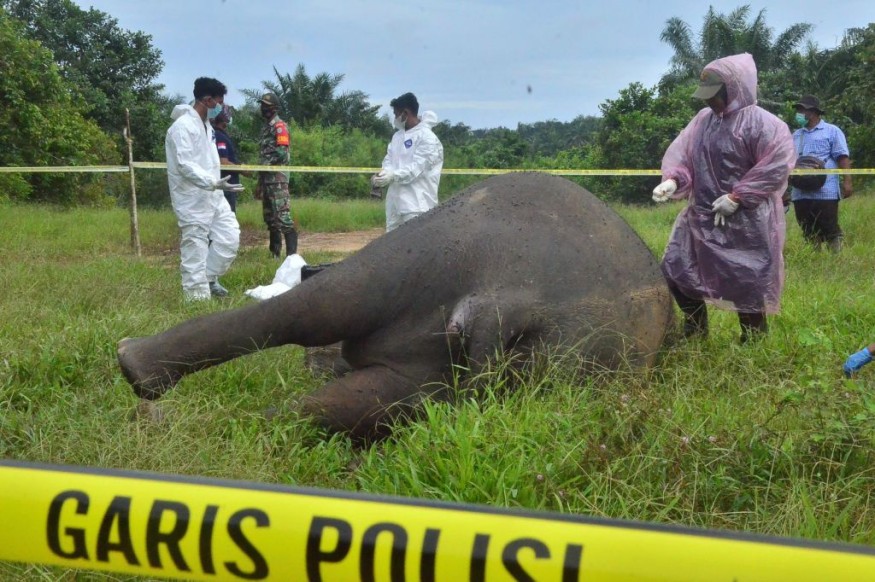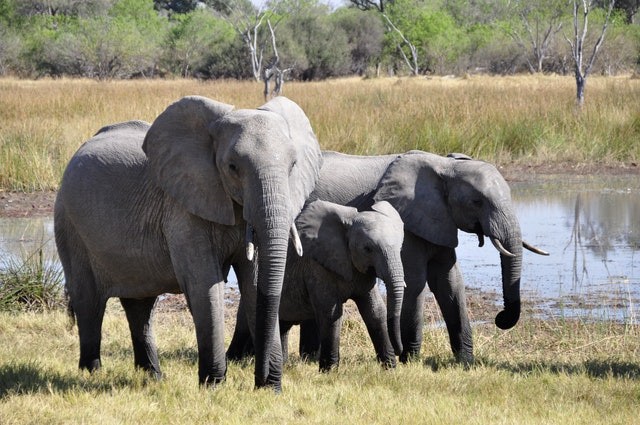Indali is a five-year-old elephant who has survived an often-fatal infection that has killed seven calves at Chester Zoo. Now, the zoo is collaborating with experts from the University of Surrey on a global first: a trial of a possibly life-saving vaccination in elephants.
The illness, known as elephant endotheliotropic herpesvirus (EEHV), has an 85 percent fatality rate. According to experts, elephants that succumbed to this deadly illness were usually between 18 months and three years of age.
But due to the severity of the virus, by the time the first symptoms appear, it's already too late. Symptoms include lethargy or oral sores.
Deadly Elephant Virus

Researchers at the Smithsonian Zoo in Washington, DC, identified the virus in 1990 and formally described it in 1999 after linking 10 cases of a "very deadly hemorrhagic illness" in juvenile Asian and African elephants in zoos.
In each case, they discovered "herpes virus-like particles" in the cells of dead elephants' hearts, livers, and tongues.
The infection has been a zoo's greatest nightmare since then. According to recent research headed by Berlin-based veterinary expert Sonia Jesus Fontes, it has been responsible for 52 percent of Asian elephant mortality in European zoos since 1985. Since 1980, it has accounted for half of all mortality in North American zoos.
It has already been discovered in nine countries, including sanctuaries, safari parks, and, most alarmingly, wild elephant populations.
The virus mainly affects the most vulnerable animals. Since 2010, just one calf has lived five years old at Chester Zoo: Indali. All of the others succumbed to EEHV. It took the lives of three-year-old Nandita and 18-month-old Aayu in a single day in 2018.
Related Article : Elephant Skull Fossil Reveals How the Species Adapted to Thrive in African Grasslands
Studying EEHV
As the primary scientist behind its creation, Prof. Falko Steinbach of the University of Surrey says that EEHV is being studied by groups of academics worldwide, but Chester Zoo is now taking a crucial step forward with the vaccination experiment.
In a report in BBC News, Steinbach stated, "We know it's practically difficult to prevent infection - we're attempting to prevent catastrophic sickness and death."
Much about how the virus causes such severe sickness is unclear, although it's thought to be spread from older elephants to calves - presumably after a calf is weaned. The mother's milk antibodies begin to diminish. The calf's immune system is in a "delicate balance" with the virus at this point, and it might get overwhelmed.
Because the new vaccination is constructed on an established and tested "scaffold," the team of immunologists, zoo doctors, and keepers can now move forward with the study. Essentially, the backbone of this vaccine is the same as that used to immunize elephants against the cowpox virus.
The scientists "seeded" this tried-and-true vaccine backbone with EEHV proteins - viral pieces that the elephant's immune system can recognize and respond to.
Trials for Vaccine

The trial is only feasible because of the participation of the zoo elephants. Vets at Chester test the elephants regularly in their fight against the virus, so the animals are accustomed to health checks and blood samples.
Aung Bo puts himself against a small elephant-ear-sized door in the bars of his training enclosure with skillful persuading from Katie and Richard Fraser, Chester's elephant team manager - and with the assistance of a giant sack of high-fiber elephant cookies.
The Chester Zoo's veterinarian, Javier Lopez, climbs a short stepladder to draw a blood sample from an elephant's ear vein. This will be the procedure for the vaccination study, with each animal receiving cookies and encouraging words from their trusted caregivers as a reward for participation.
Prof. Steinbach is optimistic that "substantial progress" toward a vaccination will be made within five years. Until then, Chester's veterinarians had been able to spot the virus before symptoms developed thanks to testing and blood donations from the herd.
When Indali was diagnosed with HIV, the team treated her for two weeks with antivirals, immune boosters, and blood plasma transfusions (donated by Aung Bo).
Indali has healed and is doing well. However, the trial's outcome may impact future calves' lives. If the vaccination proves successful, it might be used in wildlife refuges and even in the wild.
According to Mike Jordan, director of animals at the zoo, the capacity to develop this therapy in a confined context is "hugely significant" for all Asian elephants.
For the most recent updates from the animal kingdom, don't forget to follow Nature World News!
© 2025 NatureWorldNews.com All rights reserved. Do not reproduce without permission.





